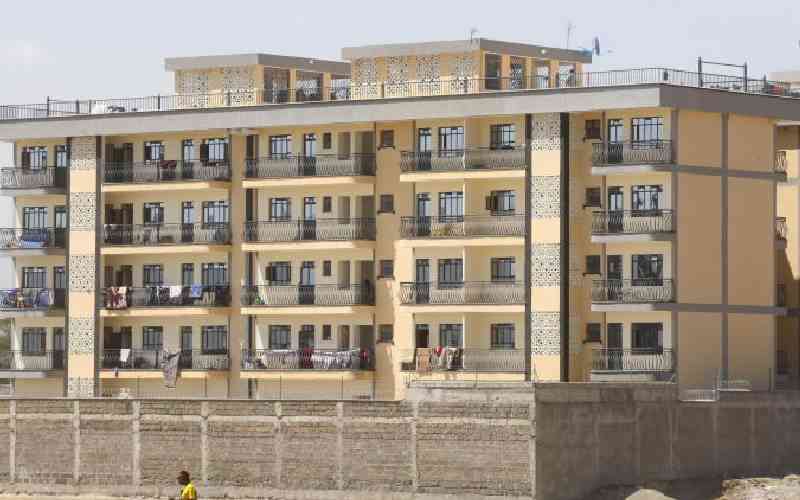By MICHAEL ORIEDO
It is World Diabetes Day today and it is being marked when there is concern about its escalating numbers around the world.
The day also marks an important milestone in history; the birthday of Frederick Banting who, along with Charles Best, was instrumental in the discovery of insulin in 1922, a life-saving treatment for more than 346 million diabetes patients worldwide, according to World Health Organisation.
 |
Sugar disease: Having your sugar checked regularly can discover diabetes early and a change of lifestyle will lead to healthy living or conquer the disease. [PHOTO: FILE/STANDARD] |
About 80 per cent of diabetes occur among low- and middle-income people. One of such people is Joyce Maina, 76.
Twice a week, Maina is supposed to eat meat or any other form of protein. The nutritionist advised her to also take fruits, drink milk and varieties of vegetables to ensure she remains healthy.
But for three weeks now, Maina, who is suffering from diabetes and hypertension, has not followed the nutritionist’s advice. In fact, she has not eaten any of the foods prescribed except traditional vegetables.
"I cannot afford to buy the foods anymore. Their prices have increased to unmanageable levels," says the grandmother.
"I eat managu, terere, kunde in plenty and drink a lot of porridge. It is unaffordable to stick to the recommended diet."
Maina is among hundreds of diabetic patients in the country hard hit by the rising prices of food and cost of living.
Many of the patients, who are required to eat specific diets to boost their sugar levels, cannot afford them because of increased prices.
Statistics from the Kenya National Bureau of Statistics released in October indicate that inflation rose to 18.91 per cent from 17.32 per cent in September.
Prices of various food items have increased considerably since the beginning of the year. These include beef, sugar, milk, wheat flour, groceries, rice and cooking fat.
The price of two litres salad cooking oil goes at between Sh280 and Sh350. A one-litre packet of milk has risen from Sh25 to Sh35. On the other hand, a 2kg packet of long grain rice costs Sh400.
Rock and hard place
As the prices of food items continue to rise, diabetics are caught between a rock and a hard place.
"I want to follow the nutritionist’s advice on diet but I cannot since the money my children give me does not allow me that luxury," Maina observes.
For breakfast, for instance, Maina and other diabetic patients were asked to take white tea and cassava or yams, which are alternatives to bread.
"You may want to eat yams or cassavas but their prices are too high. A yam tuber goes for Sh50, same as cassava and potatoes," says Maina who has lived with diabetes for 12 years.
"Then you have to buy milk for tea which is also high. I take tea without milk most of the time and two mandazis," she adds.
According to Maina, her situation is exacerbated by the fact that she has to eat several times a day. "This disease, coupled with my age, has changed my eating habits. I eat up to seven times a day. I take breakfast at 7am, then porridge at 10am. I then eat at noon, 2pm, 5pm, 8pm and sometimes I even wake up at night to eat. This habit has become expensive for me," she notes.
Peter Njuguna, 66, says the rising cost of food and high prices of drugs have compounded problems for diabetic patients.
Strong medicines
"We take very strong medicines, which require that we eat well but high prices of food do not allow us to do that," he says.
In a month, Njuguna spends about Sh1,500 on drugs and insulin, which he buys at subsidised prices at a diabetes and hypertension clinic in Korogocho run by the African Population and Health Research Centre (APHRC).
However, sometimes he does not get the drugs at the centre forcing him to buy them in chemists, which increases his costs.
"Life is becoming unbearable for us. The Government should consider offering drugs to diabetic patients the way it does to those living with HIV," he says.
To survive, Njuguna told The Standard that he eats the food he gets sparingly. "I have reduced my food rations. It is better to eat little portions and spare some for the next day than lack something to eat at all."
Sam Oti, a researcher at APHRC, which carries out studies on diabetes and hypertension among the urban poor, says rising cost of food prices places an additional burden on persons suffering from diabetes, especially the poor, who are finding it difficult to cope with the cost of medication.
He adds that the depreciating shilling has led to high costs of medication, including diabetes drugs, which are imported.
"The impact might not be felt right away, perhaps, until available drug stocks run out and new stocks come in," he notes.
To cushion themselves from high costs of, especially drugs, he advises that diabetics can come together and form support groups, possibly registered as community-based organisations, through which they can pool resources to make bulk purchases of medication at lower prices.
 The Standard Group Plc is a multi-media organization with investments in media
platforms spanning newspaper print operations, television, radio broadcasting,
digital and online services. The Standard Group is recognized as a leading
multi-media house in Kenya with a key influence in matters of national and
international interest.
The Standard Group Plc is a multi-media organization with investments in media
platforms spanning newspaper print operations, television, radio broadcasting,
digital and online services. The Standard Group is recognized as a leading
multi-media house in Kenya with a key influence in matters of national and
international interest.
 The Standard Group Plc is a multi-media organization with investments in media
platforms spanning newspaper print operations, television, radio broadcasting,
digital and online services. The Standard Group is recognized as a leading
multi-media house in Kenya with a key influence in matters of national and
international interest.
The Standard Group Plc is a multi-media organization with investments in media
platforms spanning newspaper print operations, television, radio broadcasting,
digital and online services. The Standard Group is recognized as a leading
multi-media house in Kenya with a key influence in matters of national and
international interest.









